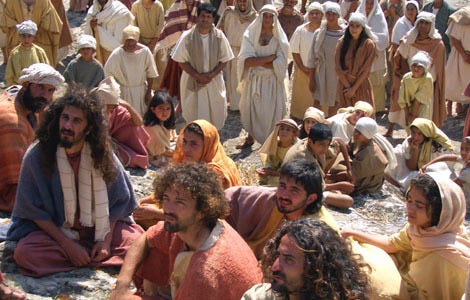“The basis for the ethics of the Sermon on the Mount is not what works, but rather who God is.” - Stanley Hauerwas
Hauerwas’ statement serves as a striking challenge to the prevailing ethical sensibilities of the modern world. In an age dominated by pragmatism, measurable outcomes, and utilitarian reasoning, we are conditioned to assess morality by its effectiveness. We want ethics that “work”—that solve problems, achieve justice, reduce harm, increase happiness. But Jesus, in the Sermon on the Mount, is not offering an ethical blueprint designed for social or political efficiency. He is revealing the character of God and inviting a people to live into that character. Hauerwas reminds us that Christian ethics are theological as well as practical. The Sermon is not about what gets results in the world, but about embodying the divine life in the world.
This reframing is crucial. If the Sermon on the Mount were primarily about what works—turning the other cheek, loving one’s enemies, giving without fanfare—it would be a hopeless failure in worldly terms. These teachings rarely produce immediate change. Enemies may remain enemies. The poor may remain poor. The meek may still be crushed. But Hauerwas insists that Jesus is not issuing moral instructions with the promise of success. Rather, he is describing what life looks like when lived in communion with the God revealed in him. The Beatitudes are not strategies for influence; they are descriptions of people whom God blesses—because these people reflect who God is. God’s character is cruciform, self-giving, merciful, pure, and peacemaking. The Sermon calls disciples to live this life, not because it works, but because it is true.
In this light, ethics becomes a matter of witness. The Christian does not love their enemy because it always changes the enemy’s heart, but because that is what God is like. God loved us while we were yet sinners. The Christian does not refrain from violence because it is always effective, but because God in Christ refused to kill even when dying. The ethics of the kingdom are not contingent on their efficacy; they are rooted in the nature of a God who suffers, forgives, and redeems. When we live this way, we testify—not to a better moral system—but to a better God. In this way, the Sermon on the Mount becomes not a law to enforce or a strategy to implement, but a lens through which to see and reflect the divine.
Hauerwas’ insight unsettles our comfortable alliance with moral success. It strips away our tendency to instrumentalize goodness. It compels the church to ask not what will fix the world, but what kind of people bear faithful witness to God in a broken world. That witness may not “work”—it may lead to crucifixion—but it will be holy. The Sermon, then, is not about being effective. It is about being faithful. And for the church, that is enough—because our ethics, like our hope, do not rest in what works, but in who God is.
___
For less than the price of a McDonald’s Happy Meal, you can receive every post from “Faith Seeking Understanding.” I hope you will consider supporting my work.




